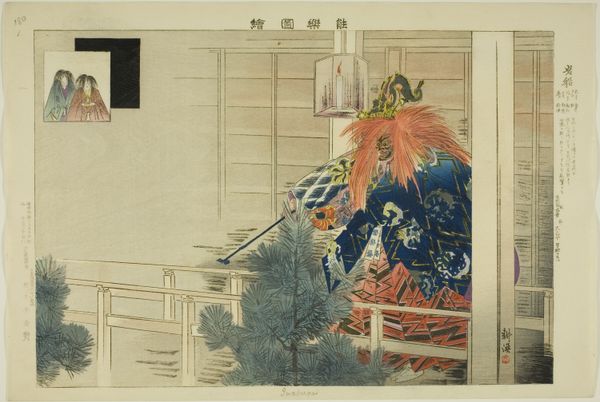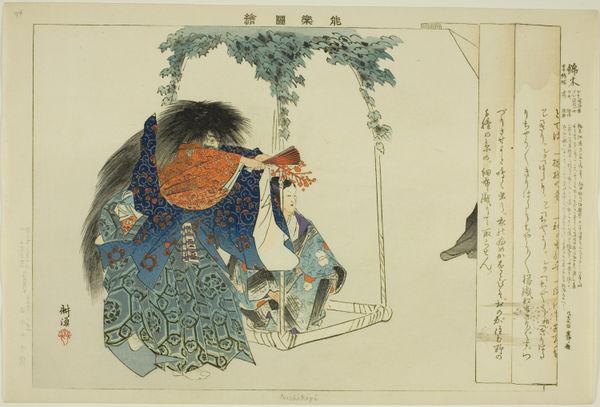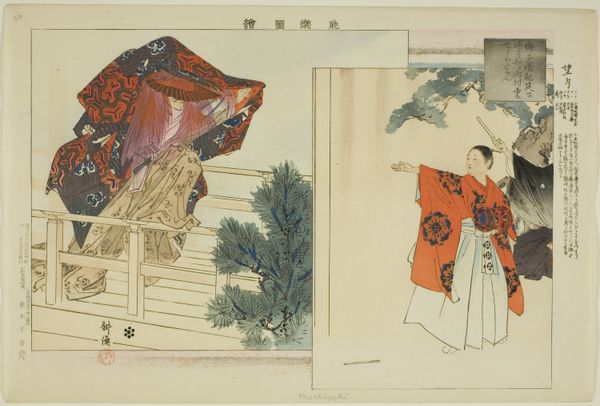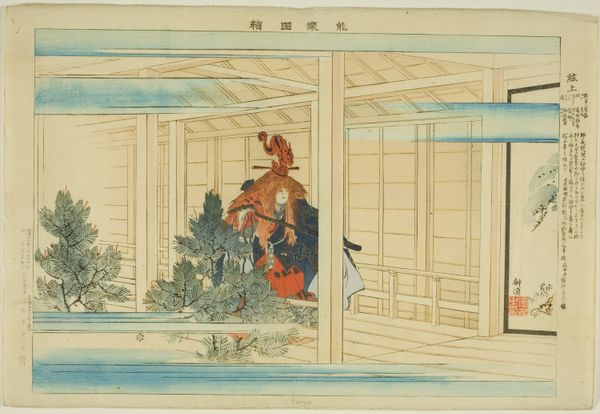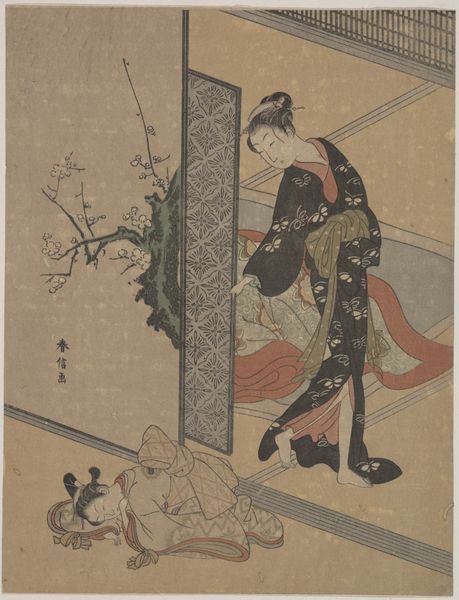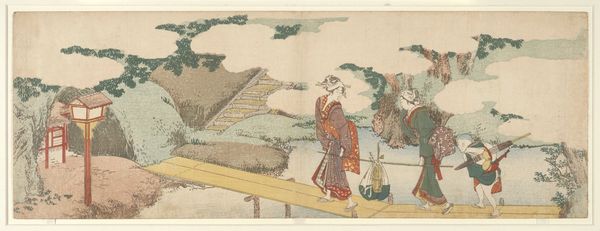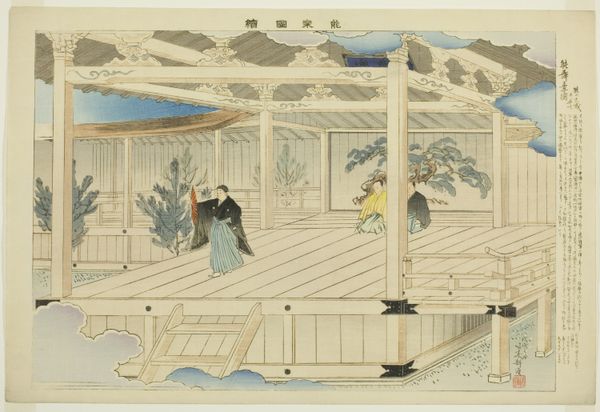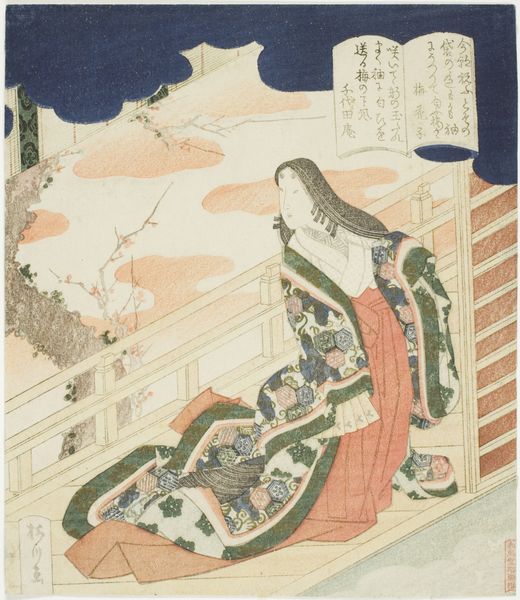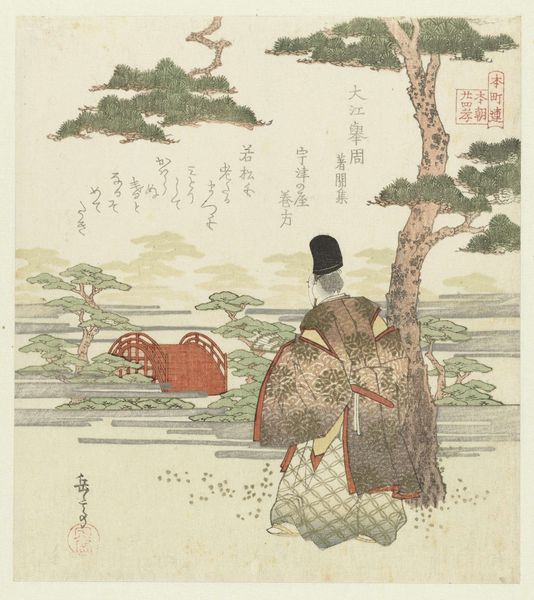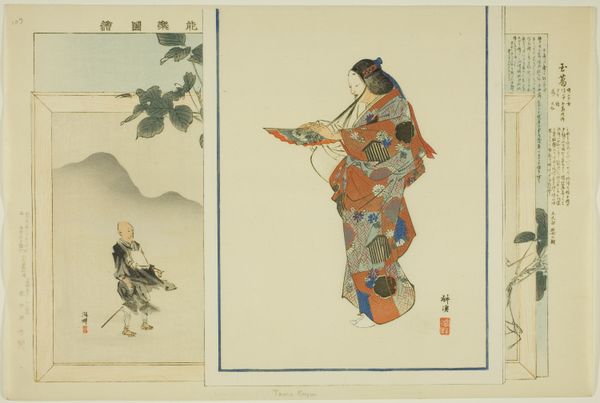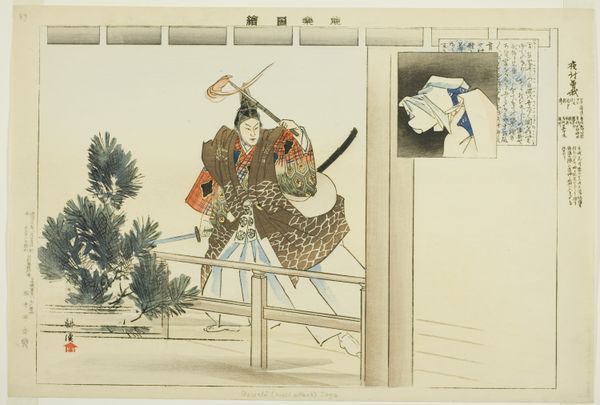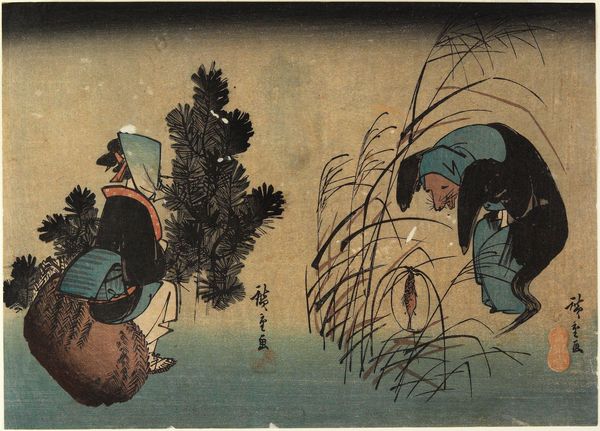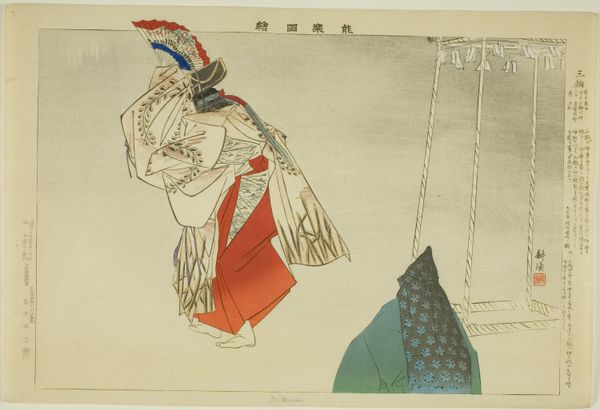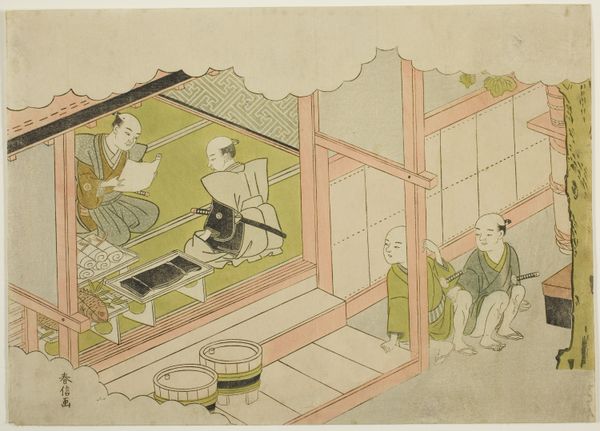
Mentako, from the series "Pictures of No Performances (Nogaku Zue)" 1898
0:00
0:00
#
toned paper
#
water colours
# print
#
asian-art
#
japan
#
handmade artwork painting
#
coloured pencil
#
painting painterly
#
watercolour bleed
#
watercolour illustration
#
mixed media
#
watercolor
#
warm toned green
Dimensions: Approx. 25.2 × 37.4 cm (10 × 14 4/3 in.)
Copyright: Public Domain
Tsukioka Kôgyo made this woodblock print, Mentako, part of the series "Pictures of No Performances," in Japan, sometime between the late 19th and early 20th centuries. It depicts a figure in traditional garb holding a mask box, possibly backstage or in a private space. This image offers a glimpse into the world of Noh theatre. Noh is a classical Japanese dance-drama, characterized by its stylized movements, masked performers, and emphasis on tradition. The mask itself signifies the character and its emotional state. This print isn’t just a depiction of theatre; it’s a window into the preservation of cultural heritage during a time of rapid modernization in Japan. Kôgyo's decision to focus on Noh suggests a conscious effort to document and celebrate traditional art forms amid broader social changes. To understand this work fully, we might consult historical records of Noh performances, costume designs, and the social status of theatre in Meiji-era Japan. The meaning of art shifts as society changes; as historians we can reconstruct the context that brings art to life.
Comments
No comments
Be the first to comment and join the conversation on the ultimate creative platform.
